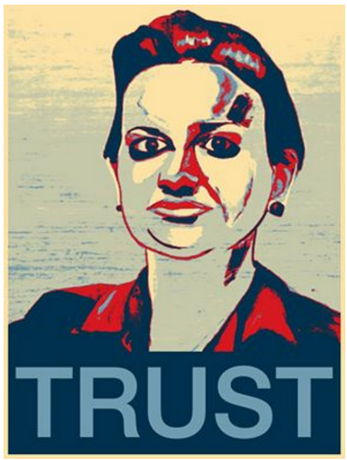Since I'm of the school of thought that does believe free speech (or rather the free dissemination of ideas) is essential to social progress (which incidentally aligns to what is currently progressive politics) , I'll try and explain my thinking. The key idea is that many ideas that we've accepted as good things for society have historically been subject to oppression,
They've succeeded only because of the limits on the ability to perform that suppression, as technology advances its much more difficult to avoid suppression (facial recognition camera systems stretching over the nation, automatic retention of your internet metadata (or data), tracking your network of friends, warrantless access to great deal of things that really shouldn't have it because the people making these decisions fail to understand just how private some "public" data is (your text messages, voice mail, phone call data, virtually all your webmail more than a couple of years old, etc)).
If these ideas are immediately suppressed then their acceptance will never happen and social progress stalls. Until things go to hell to such an extent you end up with a revolution, and the difference in power between states and individuals is now so great that the revolution is going to be a martyrs revolution not armed conflict.
The ideas need to be preserved so they can potentially be adopted in the future even if they fill you with the deepest disgust right now. A rich man in the 1700s would have been horrified by the concept of a poor female voting after all (and the logic would have been that they didn't have the mental capacity to vote appropriately, a position that would have had wide societal and academic acceptance at the time).
Where does non-governmental suppression come in ? For many historical cases you probably can't even cleanly tell what was societal and what was governmental suppression. These things feed back into each other , the government sets a tone for what is socially acceptable and social acceptance feeds back into government perception. A great deal of religious based suppression was technically societal in that its origin was in the power of the church to control social belief , but it was no less effective for that.
The ability of social media to get people fired for things that don't warrant it is truly terrifying. In what case if I understand it right there was one incident in which 3 people lost their jobs: 2 men made an off-color remark between themselves at a convention, a woman overheard and raised it on social media. All 3 of them ended up losing their jobs following the ensuing outrage. It's not really questionable the woman shouldn't have been and I don't think the men should have been either. The concept of your employer having constant veto over your every action because it may reflect badly on them is the thing of dystopian corporate nightmares (a business should only be able to do that in cases where people are projecting publicly and preferably only when they are actually representing the business).
This is a different justification than liberals tend to use, who see it as being about the personal liberty of the individual to speak and it's probably one of the reasons why we part ways on money =/= speech. To a liberal you have the personal right to express your ideas and the personal right to use your money as you wish. If the key thing is the societal good of the expression and preservation of ideas, then the use of money is a negative: Your money megaphone prevents the expression and preservation of ideas by drowning them out with sheer volume and is thus a negative, since you're effectively preventing the free dissemination of ideas.





